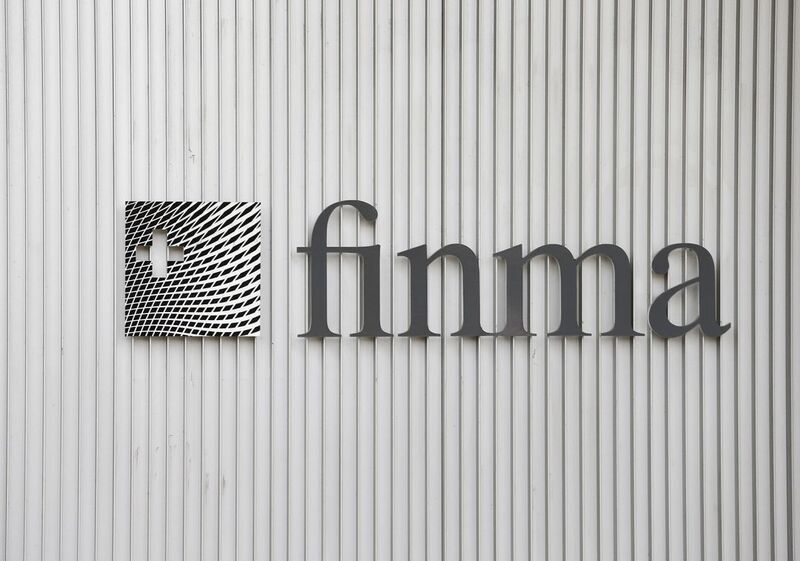Are Swiss Banks safe after Credit Suisse is rescued? This is a question that has been on the minds of many people who have money in Swiss banks or are considering opening an account with one.
The recent Credit Suisse scandal, which resulted in the bank being forced to raise billions of dollars in capital, has raised concerns about the safety and stability of Swiss banks as a whole.
The purpose of this blog is to provide readers with a clear understanding of the safety and security of Swiss banks in the wake of the Credit Suisse rescue.
If you are looking to invest as an expat or high-net-worth individual, which is what I specialize in, you can email me (advice@adamfayed.com) or WhatsApp (+44-7393-450-837).
What is the history of Swiss banks, and why are they considered to be so safe?
Swiss banks have a long history that can be traced back to the Middle Ages.
The first banks were established in the Swiss cities of Zurich and Geneva, which were known for their prosperous merchant communities.
Over time, Swiss banks became known for their discretion and reliability, which helped them to attract wealthy clients from all over the world.
One reason why Swiss banks are considered to be so safe is because of the country’s strong tradition of political and economic stability.
Switzerland has a long-standing policy of neutrality, which means that it does not take sides in conflicts or get involved in international disputes. This has helped to create a stable and predictable environment for businesses, including banks.
In addition, Switzerland has a highly developed legal system that protects the rights of investors and provides a framework for resolving disputes.
Swiss banks are also known for their strict regulations and high standards of customer service.
The Swiss government has established strict rules and regulations for banks, including requirements for capital reserves, risk management, and compliance with anti-money laundering laws.
Swiss banks are also required to maintain high levels of liquidity and are subject to regular audits and inspections by regulatory authorities.
Furthermore, Swiss banks have a reputation for providing excellent customer service, with many offering personalized attention to their clients and a wide range of financial products and services to meet their needs.
All of these factors have contributed to the perception of Swiss banks as safe and reliable institutions for managing wealth.

What was the situation with Credit Suisse that required a rescue?
Credit Suisse, one of Switzerland’s largest banks, faced a major crisis in 2021 due to its involvement with Archegos Capital Management, a US-based hedge fund. Credit Suisse was one of several banks that had extended margin loans to Archegos, which used the funds to invest in a range of companies.
However, when some of these investments turned sour, Archegos was unable to meet its margin calls, leading to a rapid decline in the value of its portfolio.
The fallout from the Archegos crisis hit Credit Suisse hard, with the bank reporting losses of over $5 billion as a result of its exposure to the hedge fund.
This led to the resignation of several top executives, including the CEO, and a major restructuring of the bank’s operations.
While the situation with Credit Suisse is certainly concerning, it does not necessarily mean that other Swiss banks are at risk.
The Swiss banking system is highly decentralized, with many small and medium-sized banks operating alongside larger institutions like Credit Suisse and UBS.
Furthermore, Swiss banks are subject to strict regulations and oversight from regulatory authorities, which helps to limit their exposure to risk.
That being said, the Credit Suisse crisis serves as a reminder of the importance of due diligence when it comes to choosing a bank, regardless of where it is located.
Individuals should take the time to research the financial health of any institution they are considering banking with and make sure they are comfortable with the level of risk involved.
Overall, while the Credit Suisse situation is certainly concerning, it does not necessarily indicate broader problems with the safety of Swiss banks as a whole.
What regulations and laws govern Swiss banks, and how do they help to ensure the safety of customer funds?
Swiss banks are subject to a wide range of regulations and laws, both domestically and internationally, that help to ensure the safety of customer funds. Some of the key regulations and laws that govern Swiss banks include:
Swiss Banking Act
The Swiss Banking Act is a federal law that sets out the legal framework for banking activities in Switzerland. The law includes provisions for capital adequacy, liquidity, and risk management, among other things.
Swiss Anti-Money Laundering Act
The Swiss Anti-Money Laundering Act is a federal law that requires banks to implement comprehensive anti-money laundering measures to prevent the use of their services for illicit activities.
Basel III
Basel III is an international regulatory framework for banks that was developed by the Basel Committee on Banking Supervision. The framework sets out minimum requirements for capital adequacy, liquidity, and risk management.
Swiss Financial Market Supervisory Authority (FINMA)
FINMA is the regulatory authority responsible for overseeing the Swiss financial sector, including banks. FINMA is responsible for enforcing Swiss banking regulations and ensuring that banks operate in a safe and sound manner.
In addition to these regulations and laws, Swiss banks are also subject to regular audits and inspections by regulatory authorities to ensure compliance with these rules. This helps to ensure that banks maintain high levels of financial stability and customer protection.
Overall, the stringent regulations and laws that govern Swiss banks, coupled with the strong oversight provided by regulatory authorities, help to ensure the safety of customer funds and maintain the reputation of Swiss banks as safe and reliable institutions for managing wealth.
How does Switzerland’s political and economic stability contribute to the safety of its banks?
Switzerland’s political and economic stability is a key factor in contributing to the safety of its banks.
Switzerland is a country with a long-standing policy of neutrality, which means it does not take sides in conflicts or get involved in international disputes. This has helped create a stable and predictable environment for businesses, including banks, which is an attractive feature for investors looking for a safe haven for their money.
The country also has a highly developed legal system that protects the rights of investors and provides a framework for resolving disputes.
The Swiss government has established strict rules and regulations for banks, including requirements for capital reserves, risk management, and compliance with anti-money laundering laws.
Swiss banks are also required to maintain high levels of liquidity and are subject to regular audits and inspections by regulatory authorities.
Switzerland’s reputation for political and economic stability is further enhanced by its currency, the Swiss franc, which is considered to be a safe-haven currency.
During times of economic uncertainty or market turbulence, investors often seek the safety of the Swiss franc, which helps to ensure the stability of the country’s financial system.
Overall, Switzerland’s political and economic stability contributes significantly to the safety of its banks, making them a popular choice for investors seeking a secure and reliable place to manage their wealth.
The country’s reputation as a stable and neutral nation, combined with its strict regulations and oversight, helps to ensure the safety of customer funds and maintain the reputation of Swiss banks as safe and reliable institutions.

How do Swiss banks compare to banks in other countries in terms of safety and security?
Swiss banks are widely regarded as among the safest and most secure banks in the world, thanks to the country’s strict regulatory framework and reputation for political and economic stability.
In comparison to banks in other countries, Swiss banks have several advantages that contribute to their safety and security.
First, Swiss banks are subject to rigorous regulatory oversight from the Swiss Financial Market Supervisory Authority (FINMA), which is responsible for ensuring that banks operate in a safe and sound manner.
The country’s banking regulations are considered to be among the strictest in the world, with high standards for capital reserves, risk management, and compliance with anti-money laundering laws.
Second, Swiss banks have a long-standing reputation for confidentiality and discretion, which has helped to attract wealthy clients from around the world.
However, in recent years, Swiss banks have become more transparent and open, with a greater emphasis on compliance and regulatory oversight.
Third, Switzerland’s political and economic stability has helped to create a safe and predictable environment for businesses, including banks.
This stability, combined with the country’s reputation for neutrality and the strength of the Swiss franc, has helped to make Swiss banks a popular choice for investors seeking a safe haven for their money.
What measures do Swiss banks take to protect against fraud, theft, and other security risks?
Swiss banks take a range of measures to protect against fraud, theft, and other security risks. Some of the key measures include:
Robust security protocols
Swiss banks typically have strong security protocols in place, including surveillance cameras, access controls, and secure data storage systems. These measures are designed to prevent unauthorized access to bank facilities and sensitive information.
Anti-fraud measures
Swiss banks employ a range of anti-fraud measures, including fraud detection software, regular audits, and employee training programs. These measures are designed to prevent and detect fraudulent activity and ensure that any potential issues are identified and addressed promptly.
Client due diligence
Swiss banks are required to conduct thorough due diligence on their clients, including verifying their identity and source of funds. This helps to prevent money laundering and other illegal activities.
Client confidentiality
Swiss banks have a long-standing tradition of client confidentiality, which is enshrined in Swiss law. While this confidentiality is not absolute, it does provide a high level of protection for clients’ personal and financial information.
Risk management
Swiss banks have comprehensive risk management programs in place to identify and manage potential risks. These programs are designed to ensure that the bank has sufficient capital and liquidity to weather any potential financial shocks.
How do Swiss banks ensure the privacy and confidentiality of their customers’ financial information?
Swiss banks have a long-standing tradition of protecting the privacy and confidentiality of their customers’ financial information.
The country’s strict privacy laws and regulations, combined with the banks’ own internal policies and procedures, help to ensure that customer information is kept private and confidential.
Swiss banks are required by law to maintain strict confidentiality with respect to their customers’ financial affairs.
This confidentiality is enshrined in Article 47 of the Swiss Banking Act, which makes it a criminal offense for a bank employee to disclose any information about a customer’s account without the customer’s consent.
To ensure the privacy and confidentiality of customer information, Swiss banks use advanced data storage systems to ensure that customer information is kept safe and secure. These systems are designed to prevent unauthorized access and protect against data breaches.
Access to customer information is restricted to authorized personnel only. Banks typically have strict access controls in place, which require multiple levels of authorization to access sensitive information.
Customer information is often encrypted when it is transmitted between bank branches or external parties. Encryption helps to ensure that the information cannot be intercepted or accessed by unauthorized individuals.
Swiss banks require the consent of their clients before disclosing any information about their accounts. This consent is typically obtained through a written agreement or power of attorney.
What steps can customers take to further protect their funds when banking with a Swiss bank?
Customers who bank with a Swiss bank can take several steps to further protect their funds and ensure the security of their accounts.
Customers should regularly review their account statements and transaction history to ensure that all activity is legitimate. If any unauthorized transactions are identified, they should report them to the bank immediately.
When accessing online banking services, customers should use strong passwords and two-factor authentication to prevent unauthorized access to their accounts.
Customers should ensure that their contact information, including their mailing address and email address, is up-to-date with the bank. This will ensure that they receive timely notifications and alerts about their account activity.
Customers should be wary of scams, including phishing emails, phone calls, and text messages. They should never disclose their login credentials or personal information in response to unsolicited requests.
They can also further protect their funds by diversifying their assets across multiple banks and investment products. This can help to spread risk and mitigate potential losses.

What are some common misconceptions about the safety of Swiss banks?
There are several common misconceptions about the safety of Swiss banks that can lead to misunderstandings and misinformation. Some of these misconceptions include:
All Swiss banks are the same
This is not true, as different banks may have different levels of risk management, client due diligence, and internal controls. Customers should do their research to ensure that they are banking with a reputable and reliable institution.
Swiss banks are not regulated
This is also untrue, as Swiss banks are subject to strict regulations and oversight by various government agencies, including the Swiss Financial Market Supervisory Authority (FINMA).
Swiss banks are secretive and uncooperative with foreign authorities
While Swiss banks do have a tradition of client confidentiality, they are required by law to cooperate with foreign authorities in cases of suspected money laundering or other illegal activities.
Swiss banks are immune to financial crises
While Swiss banks have a reputation for stability, they are not immune to financial crises or market downturns. Customers should be aware of the risks associated with investing and manage their portfolios accordingly.
To address these misconceptions, customers should educate themselves about the regulatory environment and risk management practices of Swiss banks.
They should also seek out reputable and reliable institutions and diversify their assets to spread risk across multiple banks and investment products.
Finally, customers should be cautious of sensationalized news reports or rumors and rely on trusted sources of information when making decisions about their finances.
What is the outlook for Swiss banks in the future?
The outlook for Swiss banks in the future remains positive, as they continue to operate in a stable and regulated environment.
However, the industry is not without challenges, including increased competition from other financial centers and the continued evolution of technology.
To ensure that customers feel confident that their funds will remain safe and secure, Swiss banks will need to continue to prioritize risk management and compliance. This includes implementing robust internal controls and security measures to protect against fraud, theft, and other security risks.
Banks will also need to stay up-to-date on evolving regulations and market trends and adapt their business models accordingly.
In addition, Swiss banks can further enhance customer confidence by providing transparent and comprehensive information about their products, services, and risk management practices.
This includes clear and concise disclosures about fees and charges, as well as proactive communication about changes to account terms or market conditions.
Pained by financial indecision?

Adam is an internationally recognised author on financial matters with over 830million answer views on Quora, a widely sold book on Amazon, and a contributor on Forbes.



